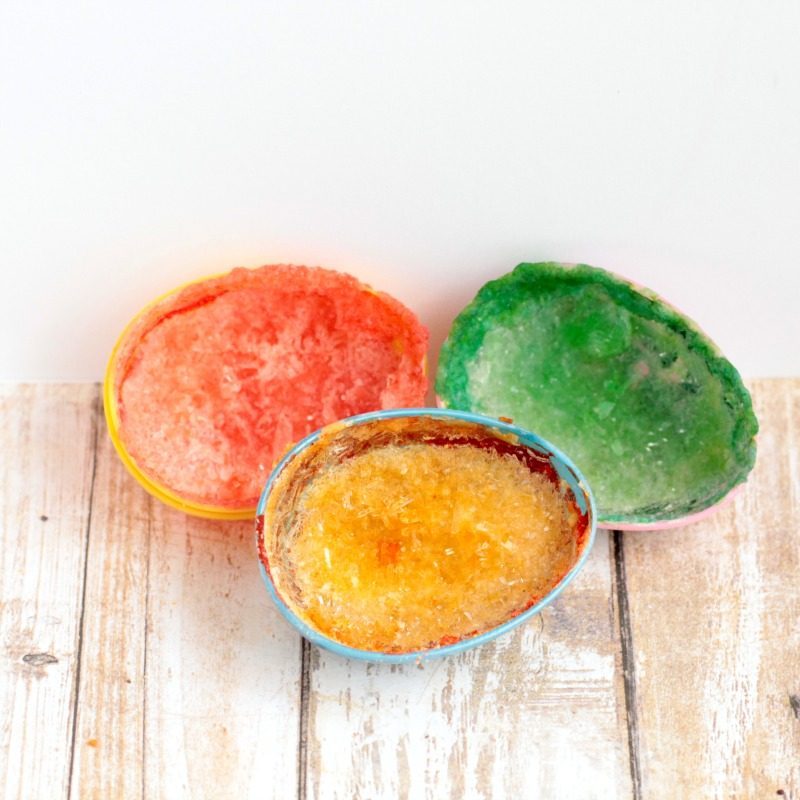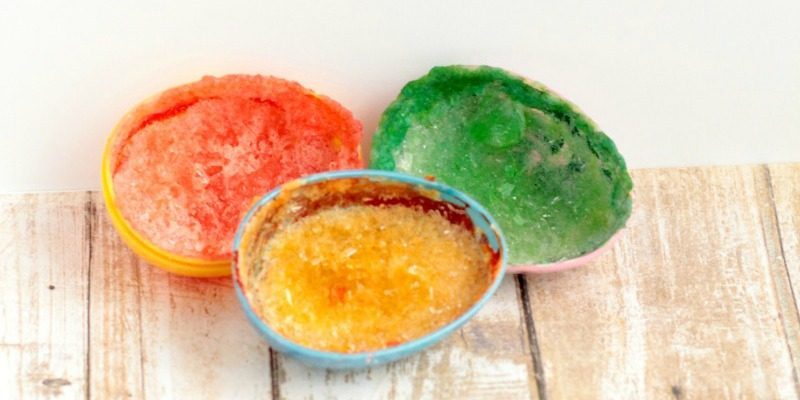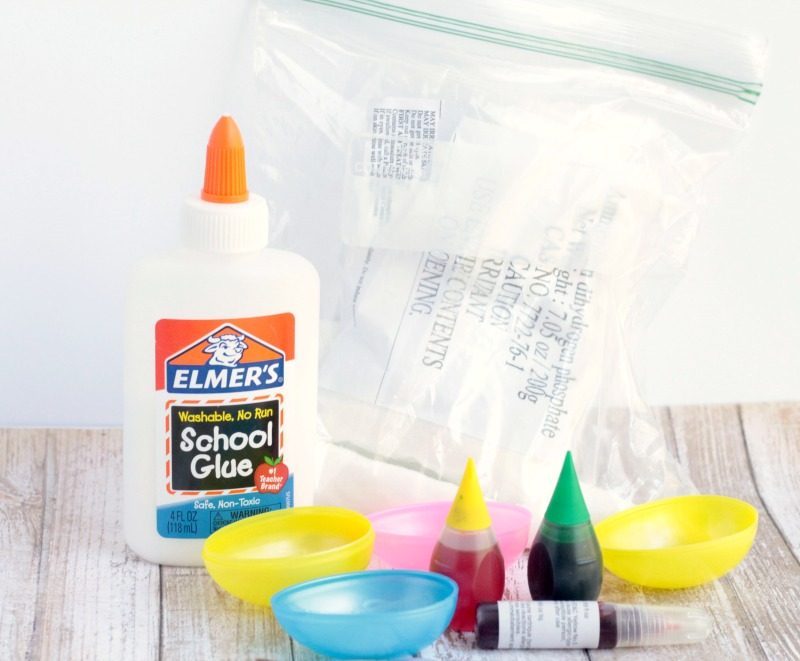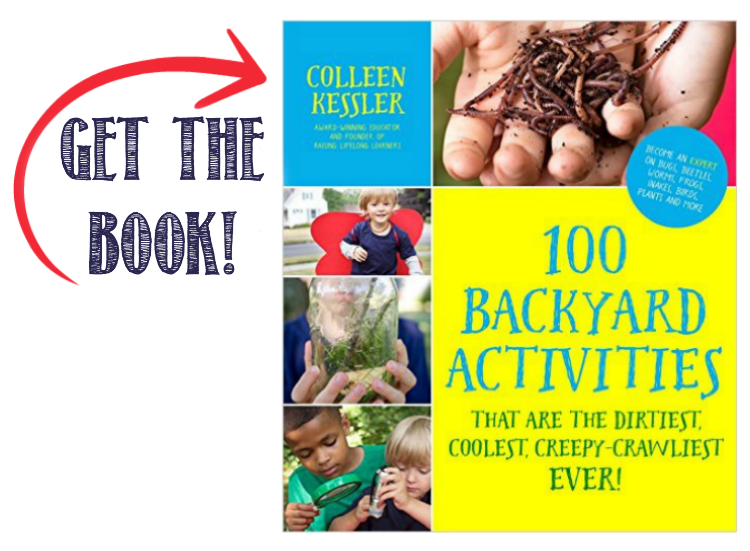Crystal Geodes Science Experiment
Most kids love creating their own crystals. Just like real geodes, these crystals are formed inside plastic Easter eggs through ionic bonding. This particular crystal geodes science experiment uses monoammonium phosphate powder, but other ingredients can be used to make these crystal geodes as well, including salt, borax, or Epsom salt with slightly different crystal shapes created depending on the type of material used. Make several different solutions and find out which one makes the most realistic geode crystals!

Crystal Geodes Science Experiment
Make crystal geodes from old Easter eggs using these simple ingredients:
- Monoammonium phosphate powder, alum, or epsom salt
- White school glue
- Paintbrush
- Plastic Easter eggs
- Food coloring
Coat the inside of each egg with white glue using the paintbrush. Sprinkle the crystal powder onto the glue. This will help the crystals form in the right spot and make it look more “geode” like. Let the glue dry. While the glue is drying, boil 1/2 a cup of water. Add six tablespoons of the phosphate powder to the hot water and stir until the powder dissolves.
Divide the liquid into as many containers as you want colors of crystals. We made red, orange, and green. Stir in the coloring. Place the eggs near a window or in another area where they won’t get bumped. Fill the eggs with the colored water.
Let the liquid evaporate completely from the crystals. This will usually take between two and four days, depending on the humidity in the air. When the liquid is gone, you’re left with colorful crystal eggs that look similar to rock geodes found in nature.

Crystal Geodes Science Explained
Adding the powder to the liquid creates a super-saturated solution. As the liquid evaporates, the powder bonds to the other powder particles building crystals. Monoammonium phosphate creates quadratic prisms, which look like little rods when examined under a microscope. This is similar to many other crystal formations, which are made through ionic chemical bonds.






